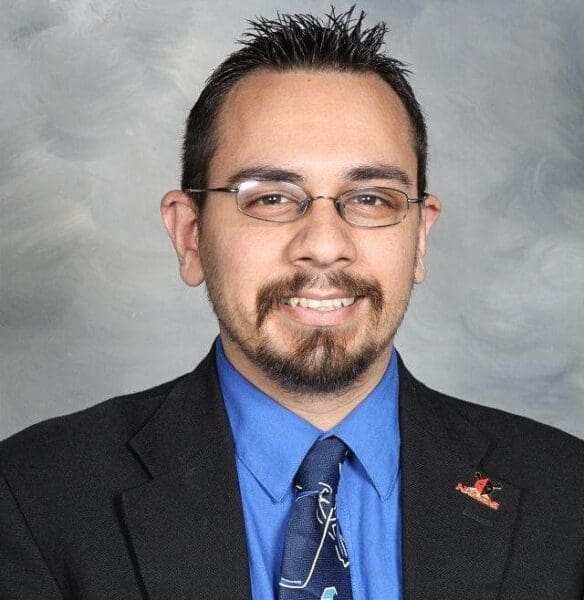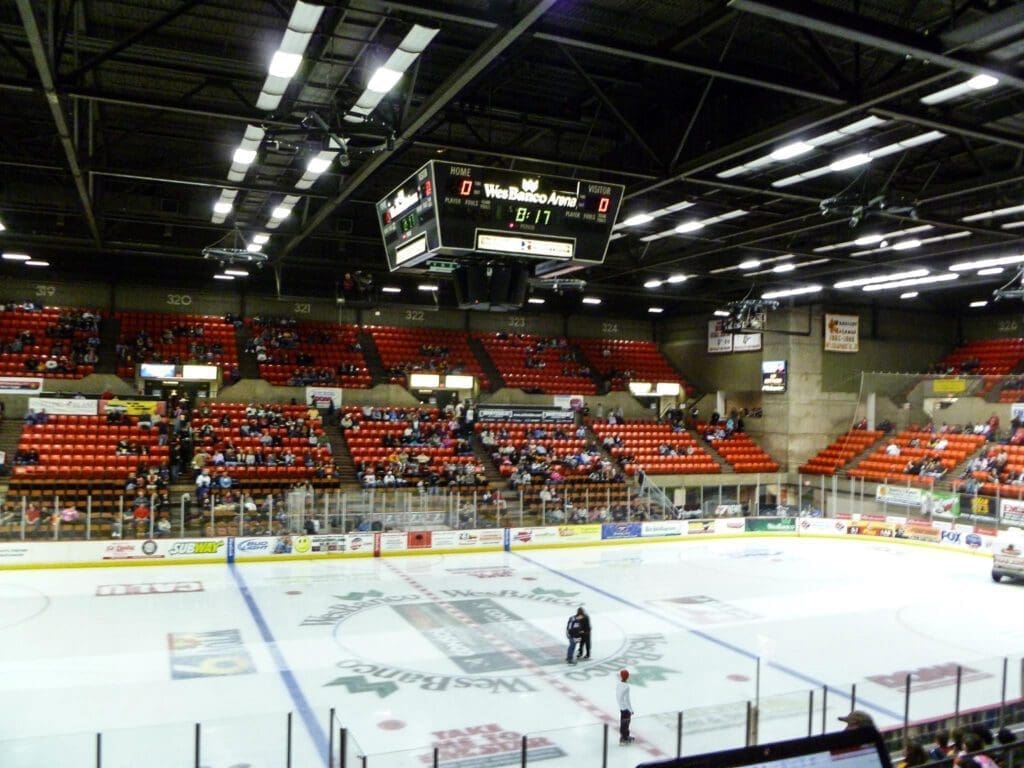He hails from a suburb town near the Maine coastline but prefers steak over lobster.
But, believe it or not, he believes his hometown is very similar to the Wheeling area, and that is why DJ Abisalih has felt comfortable as the “Voice of the Wheeling Nailers” for the past 10 seasons. Sure, the Atlantic Ocean isn’t a few minutes away, but Abisalih sees the similarities.
“Scarborough is right outside of Portland, and there were a lot of things to do there. There was always something going on, and the ocean was only 15 minutes away,” Abisalih explained. “But on the best day in Maine, the ocean is 55 degrees, so that is why I have never been a big fan of it. I’ve never been a fan of freezing my toes off.
“The lighthouses are cool, and that’s something my mother always loved about that area,” he recalled. “It’s a great spot, and I do miss it, but the Wheeling area is terrific, and the two areas are a lot alike. The people here have me treated very well, and I have lived living here for the past 10 years. It has come to feel like home to me.”
And this is why.
“To me, Wheeling has always been a smaller version of Portland because of the many towns that surround the city on the West Virginia and Ohio sides of the river,” Abisalih said. “Scarborough, to me, is more like Moundsville or Martins Ferry. You’re not in the middle of the action, but you’re close enough to go to the action.
“Another similar thing is that there are a lot of local restaurants here just like there are in the Portland area,” he said. “Of course, in Maine, seafood is very popular, and that’s why one restaurant is on a boat. Plus, there are breweries there just like there are here, and some places have terrific pasta like some of the Italian restaurants here. My favorite pasta in the Wheeling area is Figaretti’s, and I really enjoy Uncle Pete’s and the 19th Hole, too.”

Thrown Into the Fire
Abisalih was hired prior to the beginning of the Nailers’ 2011 season. In fact, it was EIGHT DAYS before game one in Greenville, North Carolina.
It took three of those days to pack his life in Maine and drive 13 hours to Wheeling, and then he had two office days to meet his coworkers and the team members before boarding a bus.
“I got thrown into the fire right away; that’s for sure. Before I knew it, I was traveling to Greenville for the season opener against them,” Abisalih recalled. “The learning curve was steep because there really wasn’t that much time to even get to know everyone in the organization.
“That first year, the broadcasting job was only seasonal, so I went home for the summer after my first season,” he said. “But that changed when the Regional Economic Development Partnership (RED) purchased the team in March 2012. That’s when the position became full-time, and I started living here full-time. That’s when I really had to make a lot of changes with my lifestyle here.”
After a decade with Wheeling’s minor-league hockey team, his duties have grown outside of the broadcasting booth. Not only is he the organization’s media relations manager, but he’s also the traveling secretary and the community events director.
“Last year was a lot different though because of Covid. I didn’t get to travel with the team for a while. In fact, the first trip I made was after Derek Army was named the interim coach after Mark French resigned as head coach in April,” Abisalih remembered. “I still made the arrangements for the team on the road, so that didn’t change, but when I did the games with Isaac Bassinger, we did them in a room in our offices in downtown Wheeling.
“And last year, we couldn’t do what we usually do in the community, but now that Derek is the head coach, I expect we’ll be as active as possible this year because when Derek was a player, he enjoyed going out and meeting people. That’s why I am positive he’ll want his players to do the same, and I’ve always had a lot of fun doing that part of the job.”

The Good Growth
Since his first season, Abisalih has witnessed changes within the Wheeling community, and most notably in the city’s downtown district. Long overdue demolitions have taken place, and many of the spaces have been repurposed with economic development like the headquarters of The Health Plan.
He has witnessed the transformation of Wesbanco Arena, as well, a building constructed in the late 1970s that remained the same for more than three decades. When the hockey franchise first arrived i the Friendly City in 1992, the same orange, hard-plastic seats were still in place. In fact, those chairs were not upgraded until eight years ago when the arena’s new front façade and lobby area were added along with video boards and luxury boxes.
“I have seen a ton of progress with the Nailers and with the Wheeling area since moving here,” Abisalih insisted. “From where the players lived to the improvements that have been made with Wesbanco Arena, there have been a lot of positive changes within our organization that have been a lot of fun to watch. We’ve grown right along with the city at the same time.
“The upcoming season will be our 30th in the city of Wheeling, and as I research the early years when the team was known as the Thunderbirds, I have seen a lot of photos of the arena and what it was like for a very long time,” he continued. “And now, when you walk in downtown Wheeling, you see a lot of the work that is being performed by the city and by private developers. That’s why I am excited to see what downtown Wheeling will look like in a just couple of years.”


